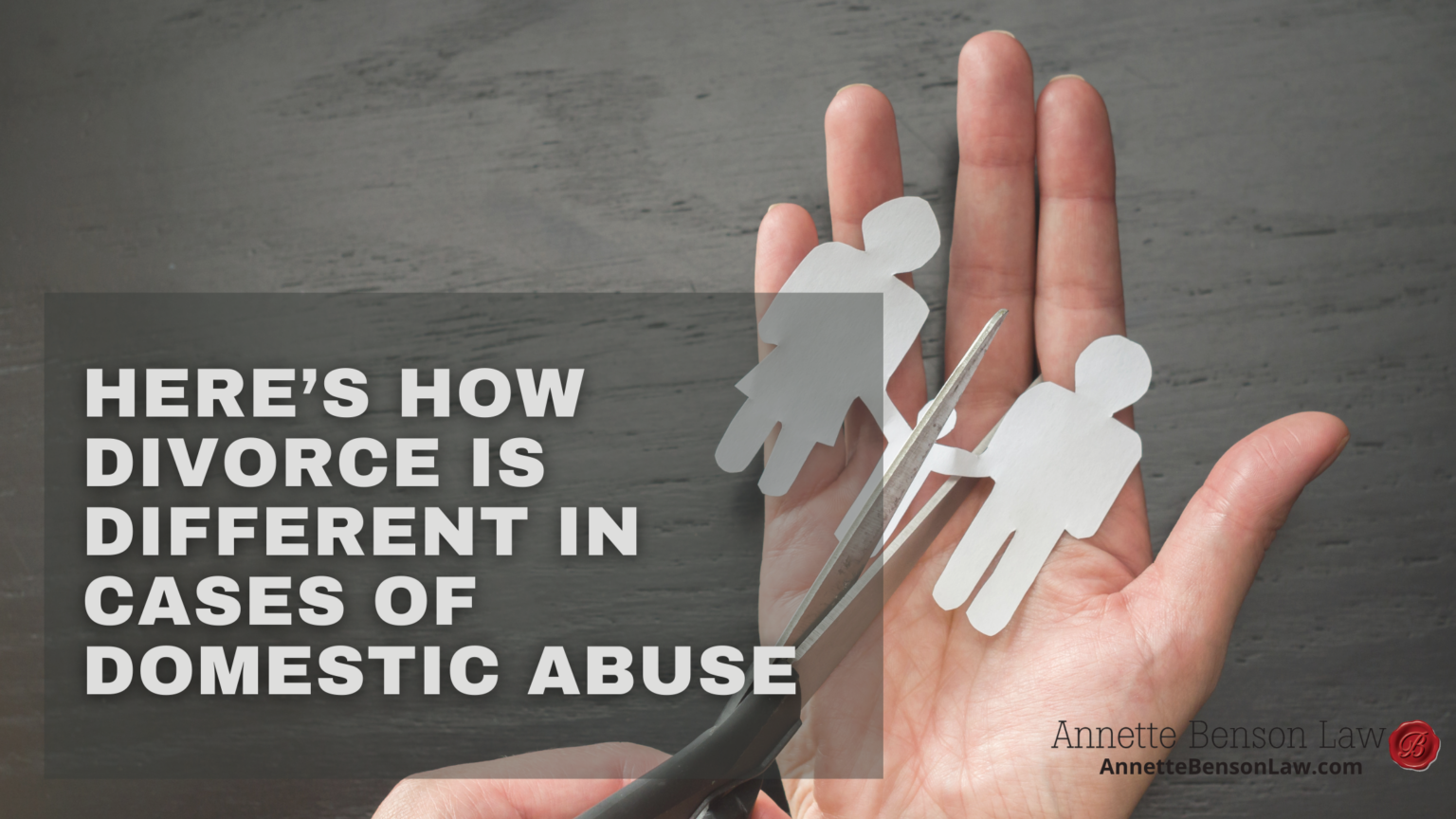
Here’s How Divorce is Different in Cases of Domestic Abuse
- Annette Benson Law
- Last Updated:
- Divorce, Domestic Abuse
When you fear your spouse more than you love him, something needs to change. You may need to file for divorce. But in cases of domestic abuse, this is rarely an easy step.
Divorce is never easy, but domestic abuse can make it even harder. If you’re thinking about ending an abusive marriage, you want to understand how your divorce may differ from others. You will also want to know how to find help.
Abuse does not lead to an even marriage
First, it’s worth noting that your spouse doesn’t need to hit you or threaten you with serious injury to be guilty of domestic abuse. Neither does he need to be convicted for the abuse to factor into your divorce. Michigan’s police and courts understand that domestic abuse can take many different forms, including:
- Physical blows
- Being locked out of your home
- Thrown objects (even if they miss)
- Verbal threats against you or your family
- Stalking
- Being denied control of your finances
- Limitations on your access to health care or insurance
- Emotional manipulation
The result is that abusive marriages are not balanced between the partners. Abusers use violence and manipulation to gain power and control over their partners. Michigan law doesn’t consider this in the grounds for divorce. Michigan only views divorce as an irreconcilable “breakdown of the marriage.” But the abuse may affect decisions regarding child custody, property division and more.
Getting help
Because your marriage suffers from an uneven power balance, you will want to consider some steps other divorces might not. The Domestic Violence Survivor’s Handbook addresses some of these steps, including:
- Get a personal protection order. Also known as a restraining order, this can help ensure your safety and that of your children.
- Stay out of mediation. Abusers manipulate and intimidate their spouses. They don’t make fair bargains.
- Alert the courts. The courts can adjust several processes when your divorce involves domestic abuse.
- File for temporary orders of custody and support. These can help until the divorce is finalized.
The courts understand you deserve to be safe. They can help you avoid face-to-face contact and other situations that might make you feel unsafe. Your attorney can help you understand your options, and you may want to work with a Michigan attorney who has experience helping survivors of domestic abuse.
Enjoy a better tomorrow
You don’t need to live with violence, threats or emotional abuse. These aren’t the hallmarks of a healthy marriage. They’re forms of torture. You don’t need to be a victim. You can get free. The right counsel can help you stand up and start down the path to a brighter future.
Connect with Us!
Recent Posts
How child custody is determined in Michigan
How child custody is determined is important for divorcing parents to understand. Knowing how child custody is determined can help parents anticipate the process so they can work to develop a child custody arrangement that is best for their child. Child custody is based on a determination of . . .
It seems we are in the midst of a divorce tsunami
For many, marriage is hard. But, during the ongoing health crisis, marriages are being strained, and unfortunately, this has led to a divorce tsunami across the globe, including the U.S.
Here’s how divorce is different in cases of domestic abuse
When you fear your spouse more than you love him, something needs to change. You may need to file for divorce. But in cases of domestic abuse, this is rarely an easy step. Divorce is never easy, but domestic abuse . . .






